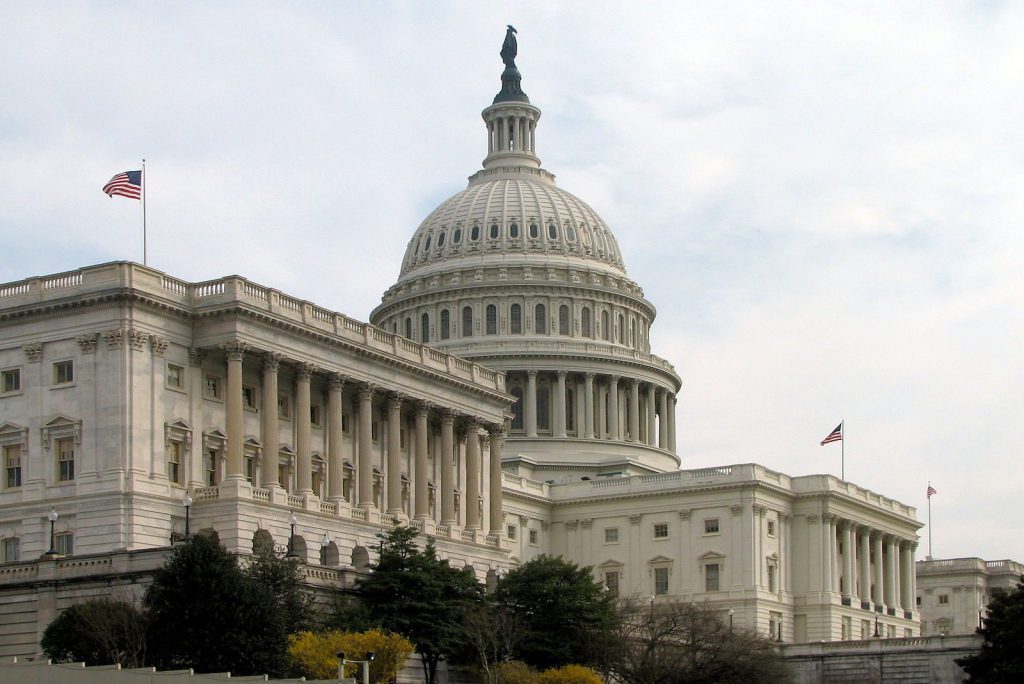Skift Take
The Senate is slated to vote Wednesday afternoon on a massive FAA reauthorization bill that contains provisions on everything from refunds to near collisions on the runway.
After months of short-term funding to keep the Federal Aviation Administration afloat, Congress just unveiled a new reauthorization bill that covers everything from pilot training to family seating.
The new reauthorization bill, which the Senate is set to vote to move forward with on Wednesday at 3 p.m. ET, also addresses the air-traffic controller shortage and technology initiatives to reduce the chance of near collisions on runways.
The bill also authorizes over $105 billion in appropriations for the FAA from the fiscal years of 2024 through 2028.
Here are some key takeaways from the 1,069-page bill:
Refunds and Airline Credits
The new reauthorization bill codifies refunds and airline credits into law, particularly when an airline significantly cancels or delays a flight.
The bill also mandates that passengers receive refunds either within seven days if a flight was booked with a credit card, or within 20 if a different form of payment was used.
Refunds are required if a domestic flight was delayed by at least three hours or if an international flight is delayed by at least six. Airlines will also be required to display easy-to-find refund request buttons on their websites.
While much of the policy falls in line with a Department of Transportation rule released April 24, it raises some questions on the enforceability of automatic refunds.
The DOT’s rule mandated that airlines give passengers automatic refunds if a flight is significantly delayed or canceled, regardless of the reason. However, the FAA bill states that passengers can receive these refunds “upon written or electronic request.”
Transportation Secretary Pete Buttigieg told reporters after a House hearing on Tuesday that he believed the automatic refunds rule could withstand legal challenges, despite the FAA bill, according to a Bloomberg reporter on X.
The bill also sets a standard for airline credits. When an airline issues credits instead of a refund, they cannot expire for at least five years.
25-Hour Cockpit Recorder Requirements
The new bill requires all commercial airplanes, including newly manufactured ones, to be equipped with 25-hour cockpit recording devices. The National Transportation Safety Board lobbied for this provision for years since many cockpit recordings in safety investigations end up overwritten.
For example, an issue in the Alaska Airlines blowout investigation was that the cockpit audio was lost. The NTSB couldn’t use the audio to determine mechanical noises or verbal communication as a door plug suddenly blew off an Alaska Boeing 737 Max 9. The FAA has historically required such recordings to be preserved for two hours.
NTSB Jennifer Homendy told reporters in January that the loss of the cockpit audio for the Alaska flight was “a loss for the FAA and a loss for safety.”
No Change to Pilot Retirement Age
Due to a post-pandemic pilot shortage, there had been some talk of the possibility of raising the pilot retirement age from 65 to 67. The House of Representatives previously voted on an older version of the FAA reauthorization bill that would have raised the retirement age to 67. However, the current bill makes no mention of changing the pilot retirement age.
Pilots’ unions were heavily opposed to raising the retirement age, with the Air Line Pilots Association arguing that raising the age would “result in lower utilization rates for pilots.”
FAA chief Michael Whitaker also told the Senate in February to not raise the retirement age since the agency needed to first study whether older pilots could pose safety risks.
Air-Traffic Controller Hiring Targets
The bill aims to address the nationwide shortage of air traffic controllers. New York airports, in particular, have faced delays and cancellations due to the shortage. The area was at about half of its target staffing levels last November.
The FAA administrator will establish a minimum hiring target for air-traffic controllers. The minimum will be the maximum count of people that could be trained at the FAA Academy.
The bill also boosts accessibility of air-traffic controller simulation training and prompts a study into air-traffic controller instructor recruitment and retention.
A November 2023 report by the FAA indicated slow hiring growth for air-traffic controllers if the FAA didn’t change its strategy.
Runway Safety
The bill asks the FAA to explore more technologies to enhance surface detection and reduce runway collision risk following a series of near collisions in 2023. In particular, Congress wants the FAA to deploy such technology at more large- and medium-sized airports.
More Worker Safety Protections
Crewmembers have dealt with an uptick in unruly passengers since the pandemic. For example, a survey showed how one in five flight attendants had been implicated in physical altercations with passengers within the first few months of 2021.
The new bill requires the FAA to work with its partners to establish minimum training requirements to protect employee safety, including crewmember self defense.
Cockpit safety has also been a rising concern. In October, an off-duty pilot allegedly tried to turn off the engines on an Alaska Airlines flight. In April, a video began circulating of a person traveling with a Major League Baseball team sitting in a United cockpit, spurring an FAA investigation.
A committee will determine a protocol for installing secondary cockpit barriers to further prevent people from accessing the flight deck. After the review, designated commercial aircrafts will need to follow the recommendations and install these barriers.
Jet Stream Newsletter
Airline news moves fast. Don’t miss a beat with our weekly airline newsletter. Landing in your inbox every Saturday.
Have a confidential tip for Skift? Get in touch
Tags: automatic refunds, congress, faa, joe biden, ntsb, pete buttigieg
